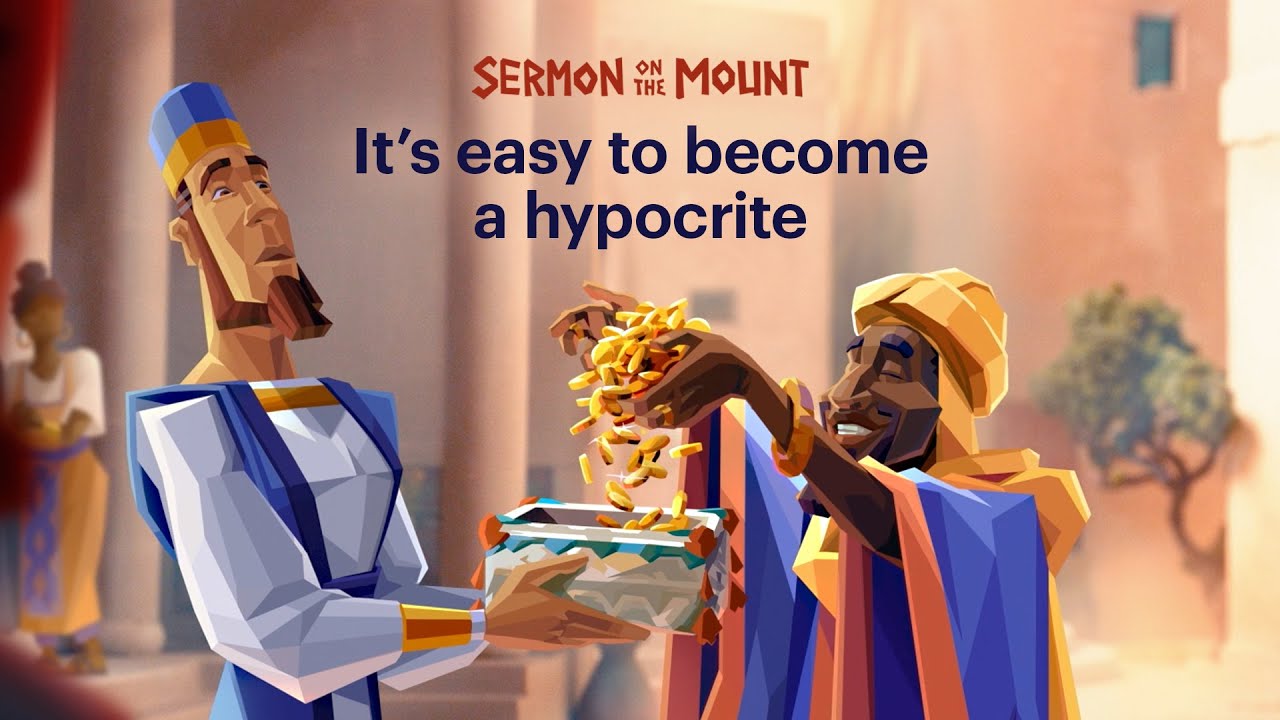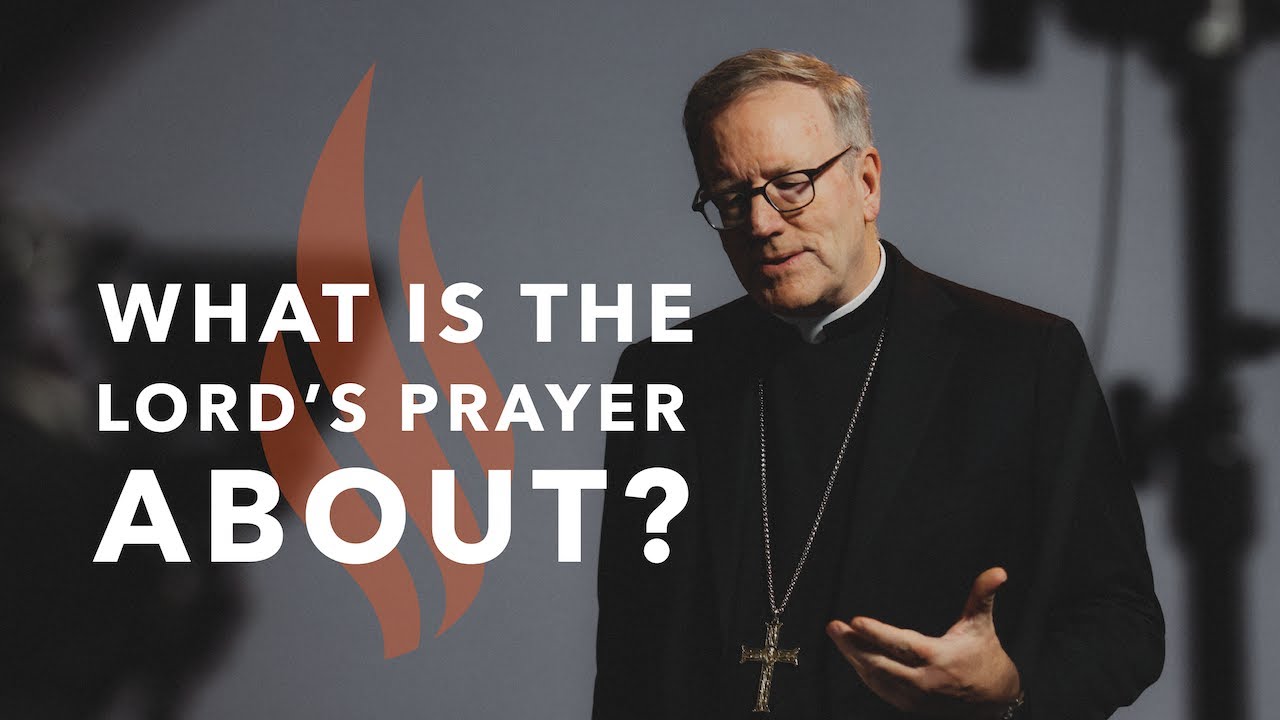Bishop Barron on The Lord's Prayer
Summary
TLDRThis video explores the profound meaning of the Lord's Prayer, as taught by Jesus in the Sermon on the Mount. It highlights key themes such as the intimacy of addressing God as 'Our Father,' the call for God's Kingdom to reign on earth, and the importance of aligning our wills with God's. The speaker delves into the mysteries of the prayer, such as the 'super substantial bread' referring to the Eucharist and forgiveness being central to Christian life. Ultimately, the Lord's Prayer is presented as a foundational model for all prayers, urging personal and societal transformation.
Takeaways
- 😀 Prayer is not about changing God's mind but aligning ourselves with God's will.
- 😀 God is portrayed as a Father (Abba), signifying intimacy and closeness in our relationship with Him.
- 😀 The phrase 'Our Father who art in heaven' reminds us that while God is intimate, He is also beyond our control.
- 😀 The Lord's Prayer teaches us that true peace arises when we hallow God's name and place Him as the highest good in our lives.
- 😀 Jesus' teaching of the Kingdom of God asks for God's order of love, justice, and peace to manifest on Earth.
- 😀 'Give us this day our daily bread' refers not only to physical sustenance but also to spiritual nourishment, particularly through the Eucharist.
- 😀 The phrase 'Super substantial bread' highlights the deep Eucharistic significance of the Lord’s Prayer in Catholic belief.
- 😀 Forgiveness is central to Jesus' teaching, and the inability to forgive is a barrier to both personal and societal healing.
- 😀 The prayer 'Lead us not into temptation but deliver us from evil' expresses a universal cry for protection from various forms of evil.
- 😀 The Lord's Prayer is not just for repetition but serves as a model for all prayer, guiding how we approach God and align ourselves with His will.
- 😀 The Church Fathers emphasized that all prayers should align with the Lord’s Prayer, ensuring they are rooted in its structure and purpose.
Q & A
What does the speaker mean when they say prayer doesn't change God's mind but changes us?
-The speaker emphasizes that prayer is not about convincing God to alter His will. Instead, it’s about aligning ourselves with God’s will and allowing prayer to transform our hearts and minds to be in harmony with God's purposes.
What is the significance of 'Our Father who art in heaven' in the Lord's Prayer?
-This line signifies both intimacy and transcendence. God is addressed as a loving Father, showing closeness and care, while 'who art in heaven' reminds us of God's supreme and untouchable nature, beyond our control or avoidance.
What does it mean to hallow God's name, according to the speaker?
-Hallowing God's name means to treat God's name with the highest reverence, placing God as the most significant value in our lives. This leads to peace within ourselves and among others, as we align our hearts with the holiness of God.
How does the speaker describe God's kingdom in the context of the Lord's Prayer?
-God's kingdom is depicted as a realm of peace, love, and justice, where God’s will is done. The prayer asks for this divine kingdom to manifest on earth, replacing the chaos, violence, and injustice of the world with the harmony and justice of heaven.
What is the meaning behind 'Give us this day our daily bread'?
-This line refers not only to physical nourishment but also to spiritual sustenance. The term 'daily bread' points to the Eucharist and the bread of heaven, symbolizing communion with Christ and seeking God’s presence in our daily lives.
Why is forgiveness central to the Lord's Prayer?
-Forgiveness is central because it reflects God’s forgiveness toward us. The prayer teaches that our ability to forgive others is essential for personal peace and social harmony, and that without forgiveness, personal and societal conflicts persist.
How does the inability to forgive impact personal and societal well-being?
-The inability to forgive can lead to unresolved personal conflicts, societal divisions, and political tensions. The speaker highlights how historical and current conflicts, such as those between different religious groups or nations, often stem from an inability to forgive past wrongs.
What does 'Lead us not into temptation, but deliver us from evil' signify?
-This part of the prayer expresses a plea for God’s protection from various forms of evil, including physical, spiritual, and psychological challenges. It’s a cry for deliverance from the harmful forces that beset us in life.
Why does the speaker consider the Lord's Prayer a model for all Christian prayers?
-The Lord's Prayer serves as the perfect model because it encapsulates all essential aspects of Christian prayer—reverence for God, seeking His will, asking for sustenance, forgiveness, and protection. Jesus instructs us to pray 'like this,' meaning that any prayer should reflect these foundational elements.
What role does the Eucharist play in the understanding of 'daily bread'?
-The Eucharist is closely tied to the concept of 'daily bread,' representing the body and blood of Christ. For Catholics, this line of the prayer is seen as a request for communion with Christ through the Eucharist, symbolizing spiritual sustenance and eternal life.
Outlines

This section is available to paid users only. Please upgrade to access this part.
Upgrade NowMindmap

This section is available to paid users only. Please upgrade to access this part.
Upgrade NowKeywords

This section is available to paid users only. Please upgrade to access this part.
Upgrade NowHighlights

This section is available to paid users only. Please upgrade to access this part.
Upgrade NowTranscripts

This section is available to paid users only. Please upgrade to access this part.
Upgrade NowBrowse More Related Video

What Did Jesus Pray for? Here’s What He Taught His Followers.

Why Jesus Warns Us About Giving, Praying, and Fasting Publicly

#SekolahSabat Remaja | Panggilan Yesus - Cornerstone Pel 11 Kuartal II 2025

What Is the Lord’s Prayer About? - Bishop Barron's Sunday Sermon

Jesus Said 2,000 Words That Changed Human History

A VERDADEIRA HISTÓRIA DA PÁSCOA: CONHEÇA A ORIGEM E O SIGNIFICADO DA PÁSCOA NA BÍBLIA
5.0 / 5 (0 votes)